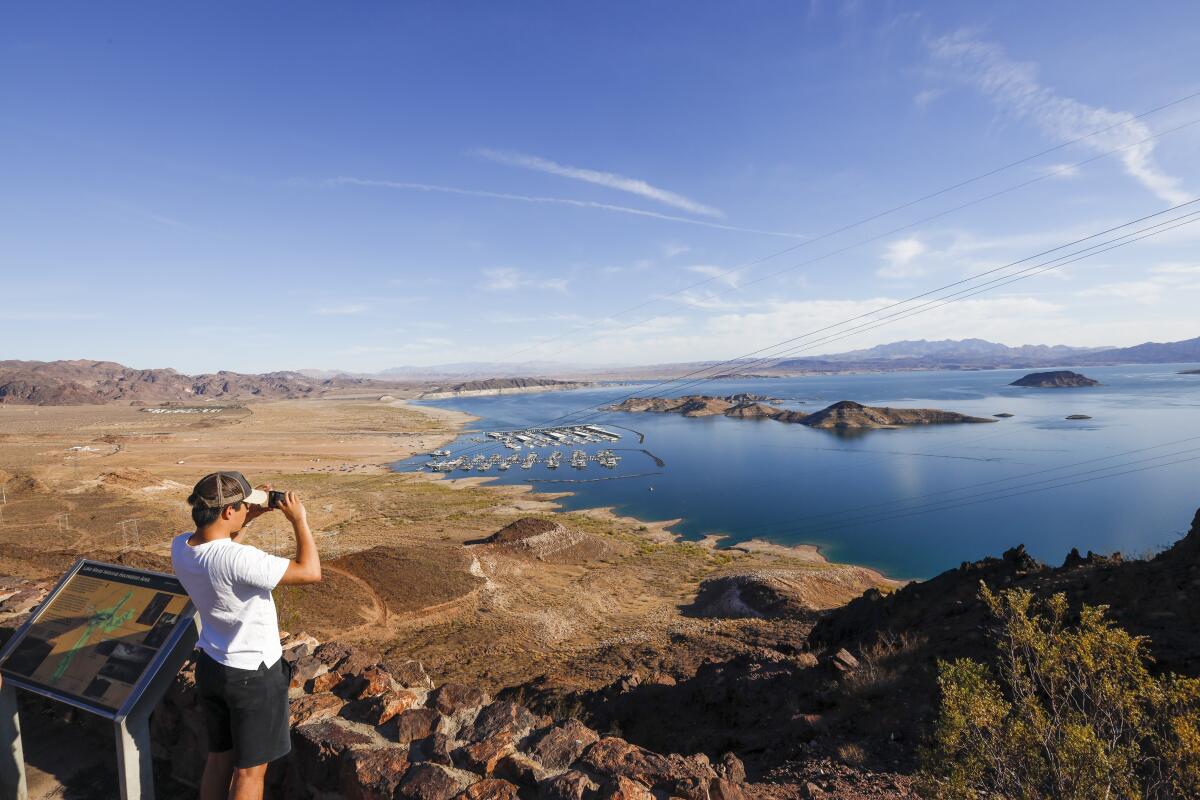Letters to the Editor: A water pipeline from the Mississippi River doesn’t sound so crazy anymore

- Share via
To the editor: With our continued dire drought and experts fearing even lower reservoir water levels in the key basins of Lake Powell and Lake Mead, maybe the proposal for a water pipeline system from the Mississippi River to those lakes isn’t so crazy after all. (“A bitter dispute ends as California water agencies pledge cooperation on Colorado River,” Sept. 28)
Such proposals have been made as far back as 1965, about the time California built its grand water distribution system called the California Aqueduct. That aqueduct is an expansive system of pipelines, canals and pumping stations, and it has served Southern California beautifully all these years.
Now is a critical time for outside-the-box thinking to solve our climate-induced water shortage. I suggest we start now on a new, grand, national water distribution system from flooded water regions like the Gulf states to the lifeblood of the Southwest, the Colorado River, which critically serves seven states.
Jeff Drobman, Chatsworth
..
To the editor: I think California should start offering rebates and financial incentives to homeowners who wish to install household water reclamation systems.
Water reclamation systems are designed to filter and store all gray water from the household. The gray water is then repurposed for irrigation and to flush toilets. The systems are able to reuse and repurpose up to 85% of household water.
If the state is able to provide rebates and financial incentives for electric and plug-in hybrid vehicles, I would think that a water reclamation system for households would not only be prudent but also financially doable.
Working to recycle and reduce the use of water in existing households and in future residential and commercial developments could have a remarkable impact on the future of California and our water consumption.
Leslie Quiett, Laguna Beach
More to Read
A cure for the common opinion
Get thought-provoking perspectives with our weekly newsletter.
You may occasionally receive promotional content from the Los Angeles Times.









